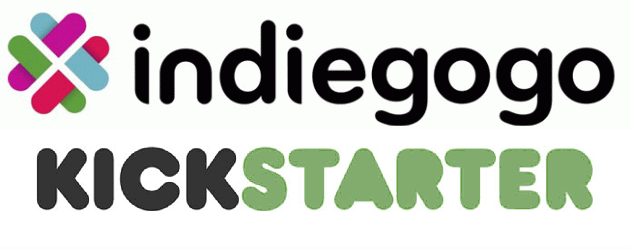Trending
Opinion: How will Project 2025 impact game developers?
The Heritage Foundation's manifesto for the possible next administration could do great harm to many, including large portions of the game development community.

Featured Blog | This community-written post highlights the best of what the game industry has to offer. Read more like it on the Game Developer Blogs or learn how to Submit Your Own Blog Post
After reading Kickstarter's article on stretch Goals, I thought I would add my own thoughts.

 You have all seen them. You may have backed a crowdfunding project because of them. But the question remains, are they good for your business? Kickstarter has finally written a blog post on the topic and it pretty much meshes with how I have always thought of them.
You have all seen them. You may have backed a crowdfunding project because of them. But the question remains, are they good for your business? Kickstarter has finally written a blog post on the topic and it pretty much meshes with how I have always thought of them.
For a typical stretch goal a creator will promise to release their game in additional formats or add extra functions if certain funding goals are hit. But expanding a project’s scope can change the creative vision and put the whole project at risk. We've seen stretch goals leave some projects overwhelmed, over-budget, and behind schedule.
Many Kickstarter projects end up significantly overfunded, and creators often use those funds to improve the project's end product. More funding might mean higher-quality materials and other improvements that thank backers with a better-made thing. For other creators overfunding means the project turns a profit. Both are great outcomes. Stretch goals, on the other hand, trade long-term risk for a short-term gain. Tread carefully.
This is pretty much how I have always looked at stretch goals. While they may seem like a good way to spend that extra money or attract additional backers, if you do not plan them out correctly, they can be a bad thing for your project. I would personally like to see that extra money just go toward general polish on the game rather than extra features that may or may not work out or that may or may not ever get completed.
More...
What I want to happen is for the game to get completed as originally promised. By pre-promising features, you are basically saying that you will implement those features regardless of the quality of the promised original project. But rather than be critical, I will give you an idea of how I would react to extra funds.
For $10,000 I promise to make a game. Details don't matter. Just keep in mind that my original estimate for time, materials, man power, taxes, reward fulfillment etc comes out to $10,000 to get my original vision done.
Now, let's say I reach that goal in the first week. I now have 3 weeks left to rake in even more cash. What am I going to do with that money? Well, just like the original funding goal, much of that will go toward reward fulfillment and taxes. So I need to keep that in mind. At this point, I will be thinking to myself that this will be a great boon to my business. I want to do something special for my backers. But what should I do?
I don't want ruin the main game by over promising on new features. That would be unfair to all the backers. What I want to do is thank those who backed and promise to do the best that I can to get the best game out by my goal. At that point, I can safely gauge how much money I have left and what can be done with it. If I feel that my game is complete and doesn't need any more work, then I have done what I set out to do. If I feel that I have the funds to add to the game through new features, levels, characters etc, then I can safely make a prediction of what can be done with the remaining funds.
This also gives me a buffer to deal with unexpected expenses and pitfalls. If I have pre-promised those additional funds to other features and the main game hits a set back, I risk alienating some or all of my backers by releasing a poor game. It would be much better for all if those additional funds went into a buffer for game completion rather than promised features.
Of course, there is also the other option. Use those left over funds to start work on your next project. The people backing you originally paid to get the game and whatever rewards your promised. As long as those are fulfilled, you are free to use any remaining funds to do whatever else you want to do.
The main point is that stretch goals can be just as much of a distraction and roadblock to you the developer as they are an incentive for people to back you. When done correctly, you can do great things. When done poorly, you can create a train wreck out of your game. In the end, it is up to you to decide what is best, but I think stretch goals are being overused and poorly implemented in a lot of crowdfunding projects.
Originally Published on Oklahoma Game Developers.
Read more about:
Featured BlogsYou May Also Like